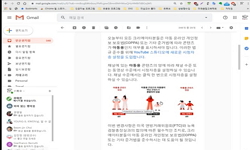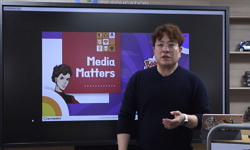This study focuses on the external factors helping children’s ability to control the usage of video media by examining the positive influence of the interactions between age-appropiate program viewing and the ways of educational viewing. For the ana...
http://chineseinput.net/에서 pinyin(병음)방식으로 중국어를 변환할 수 있습니다.
변환된 중국어를 복사하여 사용하시면 됩니다.
- 中文 을 입력하시려면 zhongwen을 입력하시고 space를누르시면됩니다.
- 北京 을 입력하시려면 beijing을 입력하시고 space를 누르시면 됩니다.

아동이 시청하는 프로그램의 연령 적합성과 영상 미디어 이용조절 관계 : 교육적 시청과의 상호작용을 중심으로 = A Relationship between the Age-appropriation of a Program for Children and Self-Regulation of Video Media Usage : Focusing on the Interactions with Educational Viewing
한글로보기https://www.riss.kr/link?id=A108601407
- 저자
- 발행기관
- 학술지명
- 권호사항
-
발행연도
2023
-
작성언어
Korean
- 주제어
-
등재정보
KCI등재
-
자료형태
학술저널
-
수록면
111-157(47쪽)
- 제공처
-
0
상세조회 -
0
다운로드
부가정보
다국어 초록 (Multilingual Abstract)
This study focuses on the external factors helping children’s ability to control the usage of video media by examining the positive influence of the interactions between age-appropiate program viewing and the ways of educational viewing. For the analysis, a survey was conducted on 1,016 parents with children aged 5 to 7. The results show that when the parents’ experience in media viewing education interacts with the children’s viewing of age-appropriate programs, it positively influences the children's ability to control their video media usage. Also, this study finds that the interaction between age-appropriate program viewing and viewing the education program can help the children control their video media viewing. The findings of this study indicate that encouraging children to watch programs appropriate for their age with indirect guidance of parents would be effective in achieving autonomous media usage by children. It is also implied that watching educational programs according to the target age group would lead the children to use media independently. This study is meaningful in that it focuses on the educational impacts letting children internalize desirable viewing habits in the circumstance where children and media are inseparably associated.
국문 초록 (Abstract)
본 연구는 아동의 영상 미디어 이용 조절 능력을 돕는 외적 요인에 집중하여, 연령에 적합한 프로그램 시청과 교육적 시청 방식과의 상호작용을 통한 긍정적 영향력을 살펴보았다. 이를 위...
본 연구는 아동의 영상 미디어 이용 조절 능력을 돕는 외적 요인에 집중하여, 연령에 적합한 프로그램 시청과 교육적 시청 방식과의 상호작용을 통한 긍정적 영향력을 살펴보았다. 이를 위해 만 5세-7세 부모 1016명을 대상으로 설문조사를 실시하였다. 연구 결과, 부모의 영상 미디어 교육 경험과 연령 적합성을 보유한 프로그램 시청이 상호작용 할 때 아동의 영상 미디어 이용 조절에 긍정적 영향을 미치는 것으로 나타났다. 또한 연령에 적합한 프로그램의 시청과 교육 프로그램 시청 행위가 상호작용 했을 때, 아동의 영상 미디어 이용조절을 돕는 것으로 나타났다. 본 연구 결과를 통해 부모의 간접적인 지도와 함께 연령 수준을 고려한 프로그램을 시청하도록 장려하는 것이 아동의 주도적인 미디어 이용에 효과적임이 드러났다. 또한 목표 연령층에 따른 교육용 프로그램을 선별하여 시청하는 것이 아동의 주체적인 미디어 활용을 가능하게 할 수 있음을 함의했다. 아동과 미디어의 관계가 더 이상 떼려야 뗄 수 없는 미디어 환경에서 바람직한 시청 습관을 내재할 수 있도록 하는 교육적 효과에 집중했다는 데 본 연구의 의미가 있다.
동일학술지(권/호) 다른 논문
-
TV 광고량과 노출 수준에 따른 커뮤니케이션 효과지표로서의 소비자 검색 행동 예측 모델링
- (주)에스비에스
- 정유진
- 2023
- KCI등재
-
정부광고의 효율적인 운영에 대해 전문가들은 어떻게 생각하는가
- (주)에스비에스
- 이희복
- 2023
- KCI등재
-
Subsumption of Attention Commons : Towards Polycentric Platform Governance
- (주)에스비에스
- 박찬경
- 2023
- KCI등재





 DBpia
DBpia






